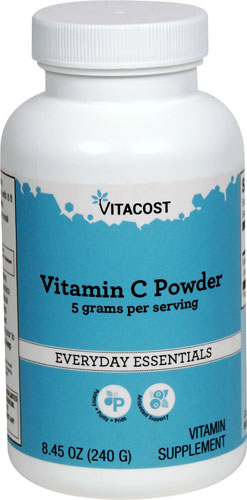With sniffle season upon us, now is a good time to take some extra steps -- like washing your hands more frequently, eating well and getting enough sleep -- to best support your immune system. While your diet should always include a variety of nutritious foods for overall wellness, you might consider paying particular attention right now to getting enough of a well-known immune-supporting nutrient: vitamin C.
What is vitamin C?
Vitamin C, otherwise known as ascorbic acid, is a water-soluble vitamin found mainly in citrus fruits and green vegetables. It functions as an important antioxidant that promotes overall health and may also be beneficial in supporting healthy immune function, cardiovascular health, skin and blood vessel maintenance and your body’s normal response to minor injury.*
Best food sources of vitamin C
Because it’s a water-soluble nutrient, vitamin C isn’t stored by your body and must continually be replaced. To make sure you're getting enough, fill your plate with colorful fruits and veggies such as oranges, lemons, grapefruit, strawberries, papaya, kiwi, goji berries, cantaloupe, leafy greens, tomatoes, potatoes, bell and chili peppers, broccoli and cauliflower.
Tips for taking vitamin C supplements
Taking a vitamin C supplement can be a good way to ensure you’re getting an optimal amount of the nutrient, for example, if your diet is lacking vitamin C-rich foods. There are a few important things to keep in mind when supplementing.
First, avoid taking too much vitamin C at once. If you take a high-dose C supplement, your body will simply eliminate much of it, and it may trigger digestive issues such as diarrhea. The most effective way to take vitamin C is to divide it into smaller doses throughout the day, which will help keep your body’s vitamin C levels on an even keel.
Second, remember that vitamin C is also called ascorbic acid. Those who have a history of gastritis (inflammation of the stomach lining) or acid reflux (heartburn) may find that these conditions are irritated by the natural acidity of vitamin C. Instead, try taking a better-tolerated form of vitamin C -- one that has been buffered. If the label on a product says “vitamin C ascorbate,” it means that the ascorbic acid has been buffered. Vitamin C is often buffered with the mineral calcium, which can provide an extra bonus for those trying to meet their calcium needs with dietary supplements.
How much vitamin C do you need?
The Recommended Daily Allowance (RDA) for vitamin C in adults is 90 milligrams a day for men and 75 milligrams a day for women, though many supplements supply higher levels to offer additional benefits.*
Best ways to take vitamin C supplements
Vitamin C supplements should be taken with water because vitamin C is a water-soluble vitamin (which means, simply, that it dissolves in water). Supplements come in capsules, tablets, chewable pills or “gummies”, along with powders that can be mixed into drinks or food.
To avoid potential disgestive troubles, start by taking a low dose, then slowly increase the amount to bowel tolerance. If you begin to experience loose stools, back off -- and then maintain this dose of vitamin C for daily support.*
*These statements have not been evaluated by the FDA. These products are not intended to diagnose, treat, cure or prevent any disease.




